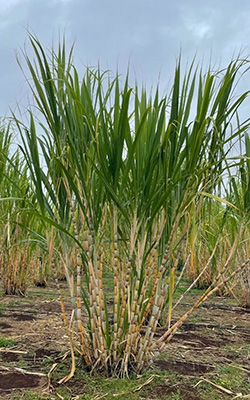From Field to Table: The Journey of Sugar and Cane
From Field to Table: The Journey of Sugar and Cane
Blog Article
Why Cane Sugar Processing Chemicals Are Vital for Modern Sugar Refining
The duty of walking cane sugar handling chemicals in modern sugar refining can not be overemphasized, as they are indispensable to enhancing both the performance of extraction and the overall high quality of the last product. Agents such as phosphoric acid and details flocculants are utilized to eliminate pollutants, causing sugar that not just fulfills customer expectations however additionally follows sector requirements. Nonetheless, the implications of these chemicals expand past quality, discussing market characteristics and ecological factors to consider. This elevates crucial inquiries concerning the sustainability of such practices and their effect on the future of sugar production.
Function of Processing Chemicals
The efficacy of cane sugar handling pivots significantly on the calculated application of processing chemicals. These chemicals play a pivotal function in boosting the efficiency and top quality of sugar removal and refining. From the initial phases of juice removal to the final purification steps, processing chemicals promote various crucial procedures.
In the removal stage, chemicals such as phosphoric acid and calcium hydroxide are employed to enhance the information procedure, helping to remove contaminations and suspended solids from the cane juice. This not only boosts the yield however also makes sure the quality of the final product. Additionally, representatives like flocculants help in the quick settling of pollutants, thereby streamlining the general process.
Turned on carbon and ion exchange materials offer to get rid of color and odor, making certain that the polished sugar satisfies consumer quality requirements. Hence, the careful selection and application of these chemicals are important for achieving ideal results in cane sugar processing.
Key Kinds Of Chemicals
Walking cane sugar processing relies on a variety of vital chemicals that help with each phase of manufacturing. These chemicals play crucial functions in making clear, whitening, and detoxifying the sugar removed from walking cane.
One main category of chemicals includes flocculants, such as polyacrylamide, which aid in the clarification process by promoting the aggregation and settling of contaminations. In addition, calcium hydroxide is usually employed to counteract level of acidity and assist in the elimination of non-sugar elements.
Bleaching agents, such as activated carbon and sulfur dioxide, are used to decolorize the syrup, resulting in a clearer final product. These chemicals aid remove shade substances that might impact the sugar's look and marketability.
Additionally, phosphoric acid functions as a pH regulator during the processing stages, making sure optimal conditions for the chemical activities associated with sugar removal and filtration.
Other vital agents consist of edta (ethylenediaminetetraacetic acid), which chelates steel ions that could catalyze unfavorable reactions, and sodium hydroxide, which assists in pH control throughout the refining process. Jointly, these chemicals enhance efficiency and make certain a high-quality walking cane sugar product.
Benefits for Sugar Quality
Commonly neglected, using details processing chemicals dramatically boosts the total quality of walking stick sugar. These chemicals play a pivotal function in refining processes, making certain that the last product satisfies rigid market standards for pureness and preference.

Furthermore, refining chemicals aid in attaining a constant granulation and texture, which are essential for consumer acceptance. By controlling the crystallization process, these chemicals ensure that the sugar crystals create uniformly, leading to a more enticing product that liquifies well in numerous applications.
Moreover, using these chemicals can improve the service life of walking cane his explanation sugar by reducing dampness absorption and microbial development. On the whole, the calculated application of processing chemicals is essential for providing high-quality cane sugar that fulfills consumer assumptions and sector demands.
Environmental Influence Considerations

Moreover, the energy-intensive nature of sugar refining, worsened by chemical use, frequently results in boosted carbon exhausts. This adds to environment change and raises problems concerning the sustainability of existing refining practices. Additionally, the sourcing of these chemicals may include methods that endanger biodiversity, such as monoculture farming, which reduces the resilience of agricultural ecological communities.

To alleviate these impacts, sugar refiners are progressively exploring sustainable alternatives and embracing best techniques that reduce chemical usage. Applying rigorous environmental management systems can assist guarantee that the refining process straightens with ecological requirements and advertises biodiversity. Eventually, a balanced approach that focuses on both sugar high quality and ecological stewardship is essential for the long-term viability of the sugar industry.
Future Fads in Refining
As the sugar sector faces the ecological difficulties related to standard refining approaches, innovative techniques are arising to enhance both performance and sustainability. One substantial pattern is the fostering of green chemistry concepts, which focus on the use of safe, biodegradable handling chemicals. This change not only lessens ecological effect yet additionally addresses customer need for cleaner manufacturing techniques.
One more encouraging growth is the execution of advanced purification innovations, such as membrane splitting up and adsorption procedures. These methods improve the clarity and top quality of the sugar while decreasing the quantity of wastewater generated throughout refining. Furthermore, the integration of electronic innovations, consisting of IoT and AI, is changing functional performance by enabling real-time tracking and anticipating upkeep, thus reducing resource waste.
Moreover, making use of byproducts from sugar refining, such as bagasse and molasses, is gaining traction. These products can be transformed right into biofuels or value-added items, adding to a round economy within the sector. Jointly, these trends indicate a change towards more sustainable practices that not only boost operational performance yet additionally align with worldwide sustainability goals, guaranteeing the future practicality of sugar refining.
Final Thought
Cane sugar processing chemicals are necessary in modern sugar refining, significantly improving the performance and high quality of sugar extraction. The tactical usage of these chemicals not only boosts the purity and flavor of the final product however likewise guarantees consistent condensation and appearance. As the sector increasingly prioritizes sustainability, the adoption of environmentally-friendly processing agents is likely to shape future patterns in refining, eventually bring about better products and extended life span for consumers.

Ultimately, a balanced approach that prioritizes both sugar quality and ecological stewardship is important for the long-term feasibility of the sugar sector.
Walking cane sugar processing chemicals are crucial in modern-day sugar refining, considerably enhancing the efficiency and top quality of sugar extraction.
Report this page